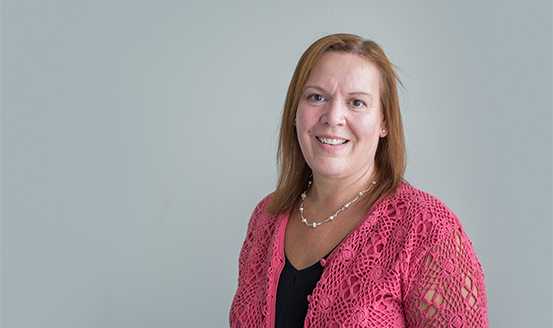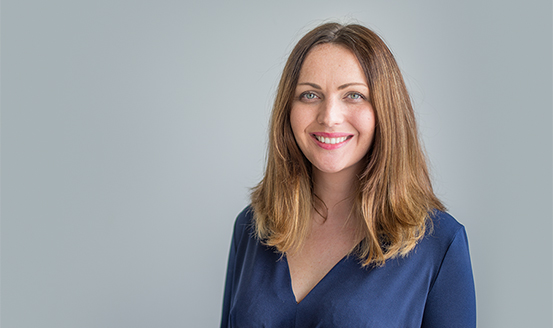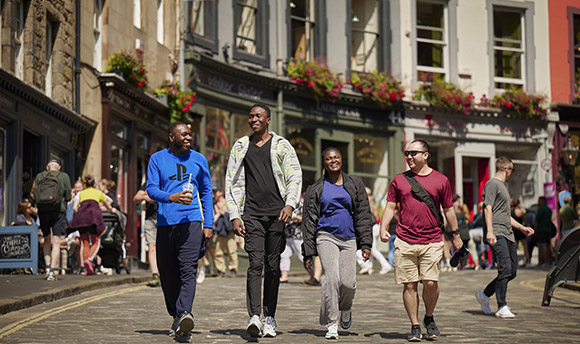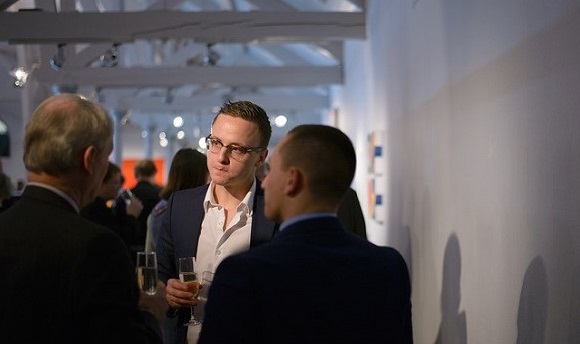This course is still open for entry in September 2024 – please visit our Clearing and Late Application page.
Media and Communications - BA (Hons)
This BA (Hons) in Media and Communications course will allow you to study media theory while gaining the creative, practical and collaborative skills you will need to establish a career in tomorrow’s global, digitally networked world.
With a wide choice of module options, the course will prepare you for a diverse range of careers including content production, news media, advertising, media production and marketing communications.
The course includes an option to study a semester abroad (subject to availability), and there is a great emphasis on work-based learning opportunities, helping you to hit the ground running when you join the workplace.
NB This course is only available for direct entry into Years Two or Three in 2024.
Why QMU?
- Learn from knowledgeable staff with real-world experience: Learn real-world skills from experienced media and communications professionals and combine that with rigorous academic skills which will be of value to you throughout your career.
- Excellent facilities: Benefit from our specialist on-campus film and media facilities.
- Smaller class sizes make for great support: We keep our student numbers lower than many other universities. This means that our staff can better get to know your interests, strengths and areas for development. You will find you build good collaborative relationships with students working in a range of other subjects.
- Hone your entrepreneurial skills: Build the confidence to stand on your own business feet with our Creative Entrepreneurship modules.
- High ranking: QMU is ranked in the top 6 of Scottish higher education institutions for Media in the Guardian University Guide 2024.
Media and Communications - BA Hons): The course in brief
We live in a world where everyone joins in media debates and many people are content creators, but how do you differentiate yourself, and your professional skills, in this field? The course is designed to enable you to do just that, by building your creative, critical and research skills year on year, as well as your ability to put ideas into writing and practice.
On this course you will:
- Gain the creative, practical, and collaborative media and communication skills you will need for the many roles that require them in the world of the media.
- Gain the media and communications knowledge and skills you will need for the many roles that require them in the fast-moving world of work.
- Study theories of media and communications and debate the role of media in economics, politics and society.
- Look at the role of publicity, propaganda and social media campaigning, and learn about the artistic and creative digital work that shapes the societies we live in. Put theoretical understanding into action through production modules that focus on video, photography, audio and digital content creation.
- Develop your writing, management and team skills needed to produce imaginative and creative work of a high standard.
- Have access to industry standard software (eg Adobe Creative Suite) and equipment when working on practical modules, alongside excellent on campus facilities including our video editing suite.
- Meet and learn from media professionals in the fields of media and communication. In addition, you will be working with carefully selected external clients on media and communication projects.
How will I be taught?
Structure
You can opt to study for an honours degree over four years or an ordinary degree over three years. You will complete a range of modules each year as outlined.
Teaching, learning and assessment
You will learn through lectures, seminars, individual work and group work. The assessment strategy uses a range of methods to support your academic and professional development. These include: essays, reports, presentations, online discussions/postings, exams, reflective diaries, e-portfolios and content production for different media such as video, photography, website, blogs, posts and tweets.
Placements
Work-based learning opportunities will help you build your theoretical studies into invaluable real-world skills.
Exchange opportunities
In Year Three you have the opportunity (subject to availability) to study for one semester at a university overseas. Please visit the Exchanges and Study Abroad pages for more information.
Teaching staff, class sizes and timetables
You can read more about the teaching staff on this course at the bottom of this page. Please note that teaching staff is subject to change.
For more information, please also visit ‘How we teach and how you’ll learn’.
What will I learn each year?
Year Two
You will:
- examine moments of disruption in various Media and Cultural industries, analysing how sectors, companies and practices adapt in response to shifts in technology and society;
- engage with key media and popular cultural debates, focusing on topics such as celebrity cultures; fandom and fan cultures; consumer cultures and online performance of self. Work with a live client to develop a media strategy and campaign; and
- gain understanding of contemporary journalism practice and produce a portfolio of online news media.
Modules
- Disruption in Media and Cultural Industries
- Popular Media Cultures
- Client Project
- Digital Communications Campaigning
- Media Production: Storytelling
- Media Production: Online Journalist
Year Three
You will:
- have the opportunity (subject to availability) to study for one semester at a university overseas. For more information, visit Exchanges and Study Abroad; and
- learn skills and approaches that will enhance your business-sense and employability. Creative Entrepreneurship is a vital part of Years Three and Four. Many of our students have gone on to create their own successful companies and we have an in-house Business Innovation Zone (BIZ to help you get your enterprise up and running.
Modules
- Media, Politics & Culture
- Designing a Research Project
- Persuasive Communication
- Working in the Film, Media, and Communications Sectors
- plus two options
Year Four
You will:
- produce an extended piece of work that aligns with your interests and specialisms. You can choose to do a production dissertation (video, screenwriting, photography), written dissertation or videographic dissertation; and
- continue to enhance your business-sense and employability by working on a media freelancing project in which you’ll develop professional standard work to show to future employers, collaborators or funders.
Modules
- Modernity on Screen
- Media Freelancing Project
- Dissertation
- plus two options
Year Three and Four module options could include:
- Communicating in Organisational Settings
- Communication, Arts and Activism
- Creative Entrepreneurship
- Experiential Learning Placement
- Film Festivals
- Photography Practice
- Playwriting/Playwriting 2
- Political Communication
- Popular Music
- Radio and Audio Media
- Reputation Issues and Crisis Management
- Science Fiction, Fantasy and Horror
- Screenwriting
- Student Initiated Module
- Television Drama
- The Video Essay
- Video Production
- World Animation
- The Only Way is Ethics
NB The modules listed here are correct at time of posting (Feb 2023) but may differ slightly to those offered in 2024. Please check back here for any updates.
Career opportunities
This course will equip you with skills in media content creation, research, writing and communication, as well as team work and management skills. These are important for a wide range of roles such as content creation, client liaison and creative entrepreneurship. You could work in the media industries, arts management, the cultural and creative sectors or communications industries. In addition, companies in a wider range of fields are constantly looking for fresh content; they want to tell their own stories and communicate compellingly through the media with their potential customers.
Media and Communications - BA (Hons): Entry requirements and application information
Direct Entry
Year Two
- HNC/HND in a related subject with B/CB in the graded unit
- Scottish Higher: BC at Advanced Higher in relevant subjects plus BB at Higher
- A Level: BBB in relevant subjects
Year Three
- HND in a related subject with CB in the graded units
For details of related HNC and HND courses, visit our College Leavers and Mature Students Advice page.
Disability/health conditions
If you have a disability, long-term physical or mental health condition, or learning disability, it should not stand in the way of your studying at QMU. However, if you are not sure whether your disability might be a barrier in your studies or in relation to the professional standards, please contact the disability service who will be able to have a conversation with you about reasonable adjustments and supports available to you.
Terms and Conditions
The delivery of this course is subject to the terms and conditions set out in our 2024/25 Entry Terms and Conditions (Undergraduate).
Awarding body
QMU
View specialist facilities film
Become your best you: study at QMU
Course Overview
Opportunities to meet us: open days and more
As well as open days, we offer campus tours and online events throughout the year to help you find out more about student life and studying at QMU.
Open days and other ways of meeting us: more information







